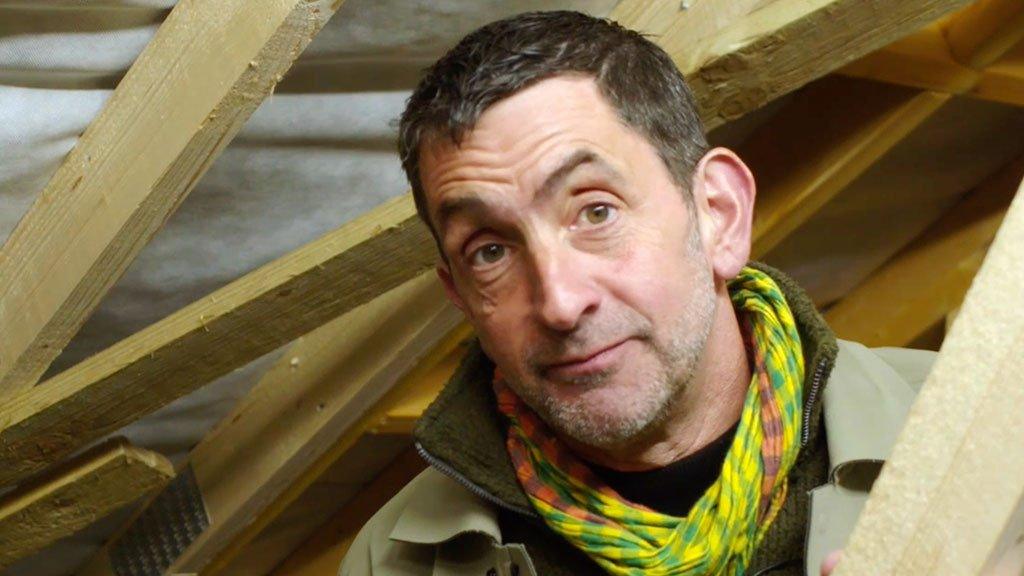Scottish government delays plan to phase out gas boilers
- Published
- comments
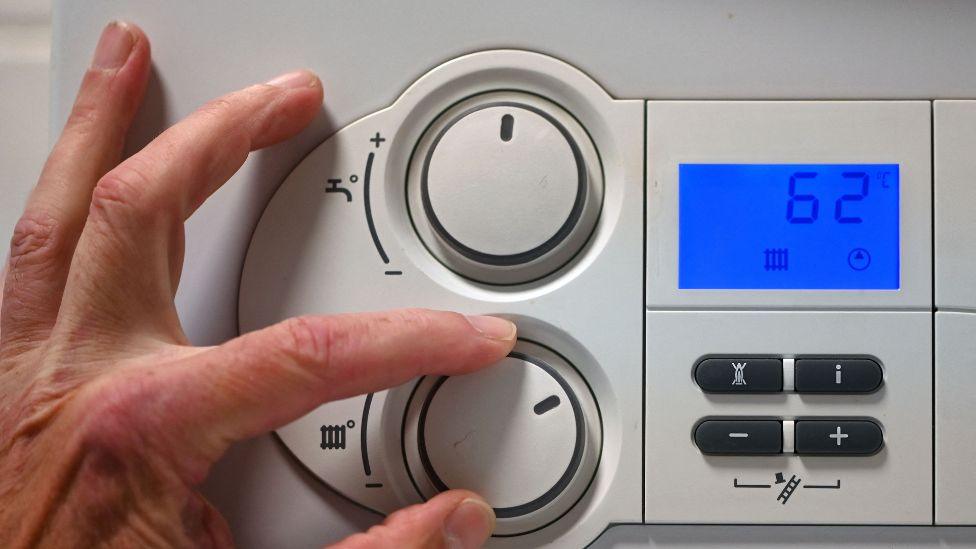
The Scottish government has pushed back its plan to start phasing out fossil fuel boilers by at least three years.
Zero Carbon Buildings Minister Patrick Harvie confirmed the change as the government published a consultation, external for a new heating bill.
He said the delay made the proposals "fairer and clearer".
Opposition MSPs have raised doubts about how the decarbonisation plan - which in 2021 was estimated to cost £33bn - would be paid for.
The first of the government's new heating standards come into effect from April, external, with gas boilers banned from new-build homes and other buildings seeking a building warrant.
Under its original energy efficiency strategy, the government aimed to phase out the need to install new or replacement fossil fuel boilers in off-grid properties from 2025, and from homes connected to the gas mains from 2030.
A "backstop" date of 2045 was set for all homes to use zero direct emissions heating systems.
The targets formed part of a power-sharing deal between the Greens and the SNP.
However, Mr Harvie announced in a statement to parliament on Tuesday that a single target date of 2028 had now been set for both on and off-grid properties, describing it as "fairer and clearer".
He also announced that a target for heating in more than a million homes to be decarbonised by 2030 was no longer possible.
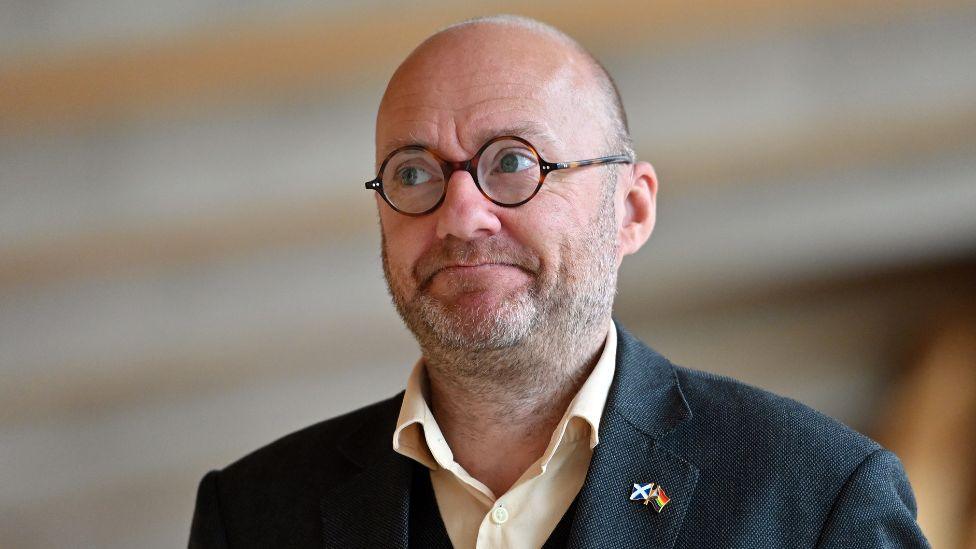
Green minister Patrick Harvie made the announcement in a statement to parliament
The minister said the government aimed to pass legislation laying the groundwork for its plans in 2025, with secondary legislation required beyond the term of this parliament, due to end in 2026.
"This means that it might be 2028 at the earliest before the first home or building owners are required to act under the terms of those regulations," he told MSPs.
Under the proposals, people buying homes or non-domestic properties before 2045 would be expected to convert to zero-emissions heating within a grace period of between two and five years after purchase, with some exemptions.
However, with the government still aiming to phase out the need to install new or replacement fossil fuel boilers, questions have been raised about when home owners would need to fork out for a new zero-emissions heating system if boiler broke down.
Mr Harvie said that the government was not yet proposing "trigger points" other than buying a house but that by 2045 all homes would need to converted to zero-emissions heating.
"That's the target date for net-zero for the whole country so of course we need to have ended our use of fossil fuel heating systems," he Mr Harvie told BBC Radio's Good Morning Scotland on Wednesday.
The government did not change its targets for privately rented homes to meet a minimum energy standard by 2028, and for owner-occupied homes to meet the standard by 2033.
Mr Harvie said it was not "precisely known" how many homes would be affected by the 2028 and 2033 targets, but that there were several hundred thousand in the private rented sector. He also accepted the £33bn projected cost of the plans could be an underestimate due to inflation.
He said the government wanted to introduce higher energy standards for homes in the social-rented sector between 2033 and 2040, with a third of demand to be met via heat networks. The deadline for public buildings would be 2038.
Cost-of-living pressures, inflation and the UK government "undermining" investment in the green transition by downgrading climate targets had caused the Scottish government to push back its own clean energy ambitions.
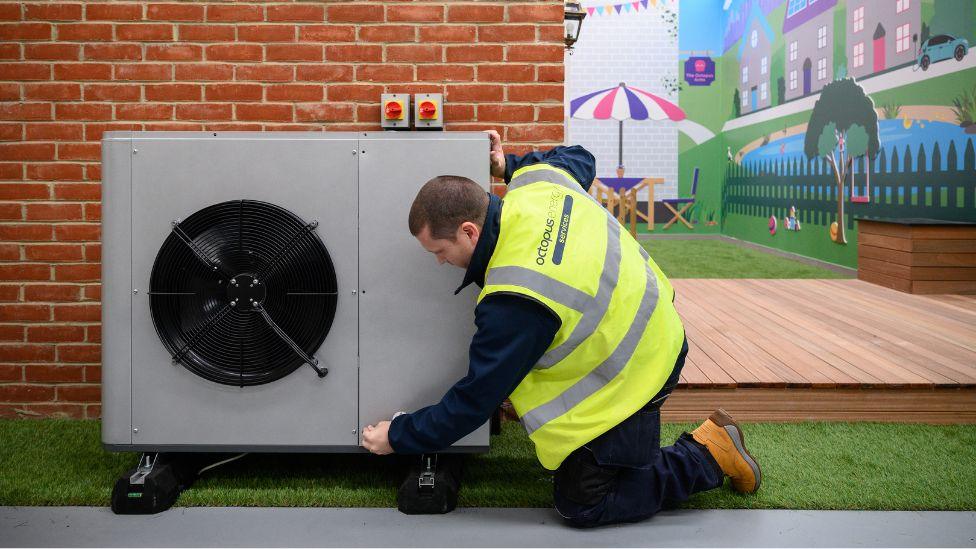
The UK government has said its changes - including watering down a plan to phase out gas boilers by 2035 - will make the green transition more affordable at a time when households were under pressure.
Ministers are aiming to reform Energy Performance Certificate (EPC) ratings, meaning homes with gas boilers would be downgraded compared to those with climate-friendly systems such as heat pumps.
The government has proposed that all residential homes will meet band C in energy performance certificate standards by 2033, "where technically and legally feasible and cost-effective".
Warm homes, not warm words
Tory leader Douglas Ross criticised Mr Harvie following his radio interview.
"He doesn't know how many homes are affected by his 2028 and 2033 deadlines, or the potential cost," Mr Ross said.
"He knows the overall £33bn cost estimate is old, and probably wrong, but not what it should be. And he has no idea - or won't say - where the money is going to come from."
Scottish Labour net zero spokeswoman Sarah Boyack asked where the extra money would come from.
"People don't need warm words, they need warm homes," she said.
Mr Harvie said the government had committed more than £1.8bn over the course of this parliament.
About a fifth of greenhouse gases in Scotland come from heating buildings. The government wants to cut emissions by replacing fossil fuel boilers with greener alternatives.
Typically, it costs about £10,000 to buy and install an air source heat pump.
The Scottish government currently offers a grant of £7,500 towards the cost of a heat pump, plus interest-free loans to cover the remainder of the installation.
- Published2 August 2023
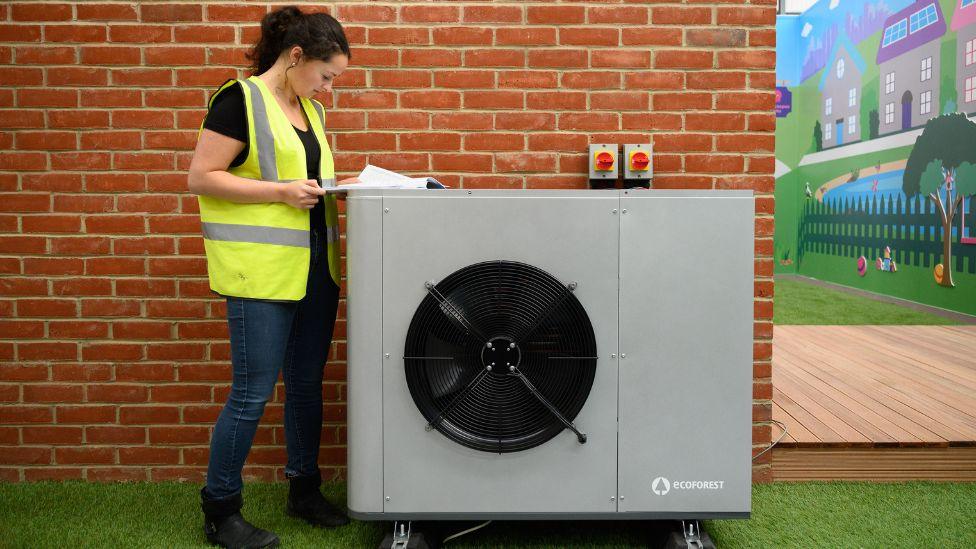
- Published1 August 2023
